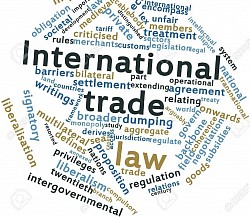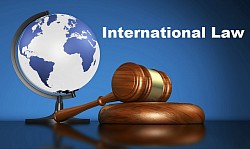Our Portfolio
Commercial Law
In the area of commercial law we provide comprehensive advice on local and international high-value projects. This includes, in particular, the structuring and establishment of purchasing and sales and distribution channels, representing clients in the negotiation of important contracts, the enforcement and defence of claims in contractual, liability, and commercial litigation proceedings before national courts and arbitration tribunals, the establishment of contract management systems, the preventive development of risk avoidance strategies, and the provision of support in crisis situations, such as in situations necessitating product recalls. We also have an extensive track record in increasingly important newer areas such as e-commerce and industry 4.0. Here we provide advice with an eye on the future and with a deep understanding of the emerging relevant issues.
Many of our cases are at the interface of various areas of the law, in particular general commercial and contract, antitrust, IP, IT, compliance, regulatory, dispute resolution, and data protection law. As a leading full-service law firm, we cover all relevant areas of a project at the highest level, working with our clients to develop optimal solutions.
Contract negotiation and drafting
Beke law firm has been successfully advising clients in Europe and overseas on the drafting of complex contracts and representing them in particularly difficult contractual negotiations for decades. We regularly support clients in pivotal negotiations in emerging legal areas and thus contribute to the determination of new industry standards.
Contract negotiation and drafting refers to the process of creating legally binding agreements between two or more parties. This process typically involves discussing and negotiating the terms of the agreement, and then drafting a written contract that reflects those terms.
Contract negotiation involves the parties discussing and bargaining over the terms of the agreement, with each party advocating for their own interests. The negotiation process may involve multiple rounds of discussion and may take place over a period of days, weeks, or even months, depending on the complexity of the agreement and the parties' willingness to compromise.
Once the parties have agreed on the terms of the contract, the next step is to draft the written agreement. This involves translating the negotiated terms into clear, concise, and legally binding language that accurately reflects the parties' intentions.
The process of drafting a contract typically involves the following steps:
Identifying the parties: The contract should clearly identify the parties who are entering into the agreement.
Defining the scope and purpose of the agreement: The contract should specify the purpose of the agreement and the obligations and responsibilities of each party.
Stating the terms and conditions: The contract should outline the specific terms and conditions of the agreement, including payment terms, delivery schedules, and any warranties or guarantees.
Including any necessary provisions: Depending on the nature of the agreement, the contract may need to include additional provisions, such as confidentiality clauses, non-compete agreements, or indemnification provisions.
Reviewing and finalizing the contract: Once the contract has been drafted, it should be reviewed by both parties to ensure that it accurately reflects the negotiated terms. Any necessary revisions should be made, and the contract should be signed by all parties.
Overall, the process of contract negotiation and drafting requires careful attention to detail and a thorough understanding of contract law. Parties may choose to work with attorneys or other legal professionals to ensure that their interests are protected and that the contract is legally enforceable.
Procurement and distribution networks
For decades we have been supporting our clients in the development of purchasing and sales structures worldwide. We also advise them on the development of contract management systems and on the training of senior managers and decision-makers in this area.
We advise on current major issues and provide support for cross-border large-scale projects. This includes advising on (international) selective sales and distribution and conditions systems, the introduction of new sales and distribution channels, online sales and e-commerce, compliance issues, sales cooperation, the negotiation of framework sales and distribution contracts, and the resolution of disputes with trade representatives and sales and distribution partners in an international context.
Procurement law refers to the body of laws and regulations that govern the process by which government agencies and organizations acquire goods and services from private contractors. The procurement process typically involves a number of steps, including identifying the need for goods or services, issuing a request for proposals (RFP), evaluating proposals, and awarding a contract.
Procurement laws vary by jurisdiction, but generally aim to ensure that the procurement process is fair, transparent, and competitive. Key aspects of procurement law may include:
Procurement methods: Procurement laws may specify different methods for procuring goods and services, such as competitive bidding, sole-source procurement, or request for proposal (RFP) processes.
Contract terms and conditions: Procurement laws may specify the terms and conditions that must be included in government contracts, such as pricing, delivery schedules, and performance metrics.
Bid evaluation criteria: Procurement laws may set out the criteria that must be used to evaluate bids, such as price, technical merit, and past performance.
Conflict of interest rules: Procurement laws may prohibit conflicts of interest, such as government employees awarding contracts to companies with whom they have a financial interest.
Dispute resolution: Procurement laws may set out procedures for resolving disputes that arise during the procurement process, such as bid protests or disputes over contract performance.
Compliance and enforcement: Procurement laws may establish compliance and enforcement mechanisms, such as audits, investigations, and penalties for non-compliance.
Overall, procurement law plays an important role in ensuring that government agencies and organizations acquire goods and services in a fair and transparent manner. By following established procurement laws and procedures, organizations can help ensure that they get the best value for their procurement dollars while minimizing legal risks.
Litigation
We have extensive expertise in the representation of our clients in disputes in the area of commercial law, such as disputes relating to contractual law, liability cases, cases involving recourse claims, and mass proceedings.
We have a deep understanding of sector-specific issues and of the technical aspects of such cases and have for decades been successfully representing our clients before national courts and international arbitral tribunals.
International litigation refers to legal disputes that arise between parties from different countries or that have international elements, such as cross-border contracts, transactions, or investments. International litigation can be complex and challenging, as it may involve different legal systems, cultural norms, and language barriers.
Some key aspects of international litigation include:
Jurisdiction: International litigation may involve determining which court has the jurisdiction to hear a particular case. This may involve analyzing factors such as where the parties are located, where the dispute arose, and the terms of any applicable contracts.
Choice of law: In international litigation, it is often necessary to determine which country's laws apply to a particular dispute. This may involve analyzing factors such as the governing law of the contract, the location of the parties, and the nature of the dispute.
Enforcement of judgments: International litigation may involve enforcing judgments obtained in one country in another country. This may require navigating complex legal procedures and treaties, as well as cultural and linguistic differences.
Cross-cultural communication: International litigation may require working with parties from different countries with different cultural norms and languages. Effective communication and understanding of cultural differences is essential to successfully navigating these disputes.
International arbitration: International litigation may be resolved through international arbitration, which is a private dispute resolution process that can provide a more efficient and flexible alternative to traditional litigation. International arbitration may involve different procedural rules, arbitrators from different countries, and the application of international law.
Overall, international litigation can be complex and challenging, but with the right expertise and experience, parties can navigate these disputes and achieve successful outcomes. It is important for parties involved in international transactions or disputes to work with experienced international litigators who can help them navigate the legal landscape and protect their interests.
Risk and crisis management
For decades we have been among the leading legal advisers in the area of product liability and product safety. Our services include preventive advice and the development of risk avoidance and recall strategies, product safety and product certification and the drafting and negotiation of quality assurance agreements, as well as interacting with insurers and handling litigation in product liability cases.
We manage and coordinate worldwide recall campaigns and direct companies safely through crises in the event of an emergency. We help our clients avoid mistakes when communicating with the authorities domestically and overseas and minimise criminal and administrative risks.
Risk and crisis management law refers to the set of legal principles and strategies designed to help organizations anticipate, prevent, and respond to risks and crises that could threaten their operations, reputation, or financial stability. Effective risk and crisis management can help organizations minimize the impact of negative events and protect their stakeholders.
Some key areas of risk and crisis management law include:
Risk assessment: Risk assessment involves identifying potential risks that an organization may face, such as natural disasters, cybersecurity threats, or reputational risks. This process may involve analyzing the likelihood and potential impact of these risks and developing strategies to mitigate them.
Crisis planning: Crisis planning involves preparing for potential crises before they occur. This may involve developing contingency plans, establishing communication protocols, and training staff on crisis response procedures.
Compliance: Compliance with legal and regulatory requirements is a key aspect of risk and crisis management. Organizations must stay up-to-date on applicable laws and regulations and take steps to ensure compliance.
Liability and litigation: Risk and crisis management law also involves understanding potential liability and litigation risks associated with various types of crises. This may involve analyzing contractual obligations, insurance coverage, and potential legal claims.
Crisis response: In the event of a crisis, organizations must be prepared to respond quickly and effectively. This may involve coordinating with emergency responders, communicating with stakeholders, and taking steps to mitigate the impact of the crisis.
Overall, risk and crisis management law is essential to protecting organizations from potential risks and minimizing the impact of negative events. It requires a thorough understanding of legal and regulatory requirements, as well as effective planning and communication strategies. Organizations should work with experienced legal professionals to develop effective risk and crisis management plans that can protect their operations and stakeholders.
Foreign investment advisory
Our law firm provides valuable assistance with foreign investment by providing legal advice and guidance to clients investing in foreign markets. Here are some ways we can help with foreign investment:
Regulatory compliance: Law firms can help clients navigate complex regulatory frameworks when investing in foreign markets. They can advise on compliance with local laws and regulations, including foreign investment laws, tax laws, and labor laws.
Investment structuring: Law firms can assist clients in structuring their investments in a way that maximizes their benefits and minimizes risks. This may involve setting up joint ventures, partnerships, or subsidiaries in the foreign market.
Due diligence: Before making any investment, it is important to conduct thorough due diligence to assess potential risks and identify opportunities. Law firms can assist with conducting due diligence on potential investment targets and provide legal advice on issues such as intellectual property, contracts, and liabilities.
Negotiation and drafting of contracts: Law firms can assist with the negotiation and drafting of contracts with foreign parties, including investment agreements, joint venture agreements, and licensing agreements.
Dispute resolution: In the event of a dispute, law firms can assist clients with resolving disputes through negotiation, arbitration, or litigation. They can provide legal advice on issues such as jurisdiction, enforcement of foreign judgments, and choice of law.















